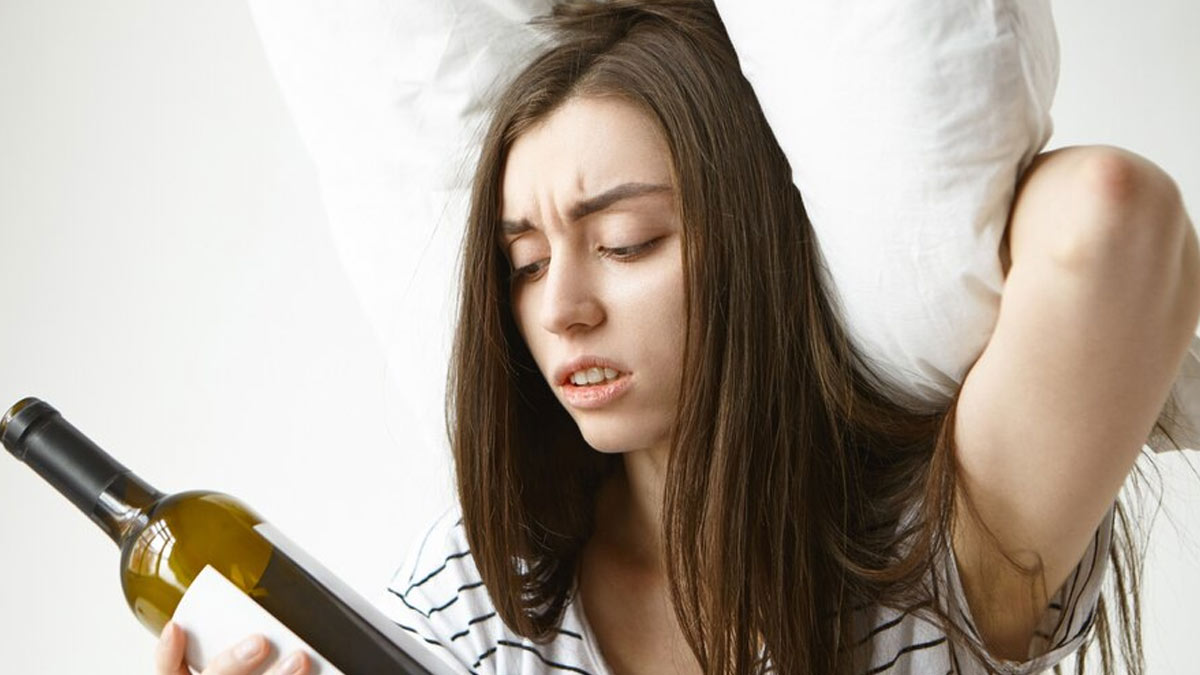
We all know that alcohol is not the best for our health, but did you know that it can also affect your skin? Yes, your evening out with friends might be taking a toll on your complexion without you even realising it. We spoke to our expert Kiran Bhatt, Cosmetologist, Vice President, Junoesque Clinic, Delhi, who explained the impact of alcohol on your skin and how to combat it.
Table of Content:-
Impact Of Alcohol On Skin Health
Here's how alcohol affects your skin, and what you can do to keep your glow strong:

Dehydration
“Alcohol is known for making you feel thirsty, and that is because it dehydrates the body, including your skin. Dehydrated skin can look dull and feel tight”, said Bhatt. To keep your skin happy, make sure to drink plenty of water alongside those cocktails.

Redness and Rosacea
Ever noticed your cheeks getting rosy after a few drinks? That's alcohol dilating your blood vessels, causing temporary flushing. “Alcohol can trigger and worsen conditions like rosacea, causing persistent redness and visible blood vessels on your face. If you're prone to this, it might be wise to moderate your alcohol intake”, added Bhatt.

Acne
Acne also has a connection to alcohol. Excessive drinking can disrupt hormonal balance and lead to increased oil production, potentially making acne worse. Cutting back on alcohol might be a simple step to clearer skin.
Also Read: Are Supplements Necessary For Better Skin? Here's What The Expert Says
Premature Ageing
Worried about wrinkles? Alcohol might affect that too. Bhatt highlighted, “Over time, excessive drinking can contribute to premature ageing by breaking down collagen and elastin, the proteins that keep the skin firm. If youthful skin is your goal, limit your alcohol consumption.”
Dark Circles and Puffiness
Have you ever woken up with mysterious dark circles or puffy eyes? Last night's alcohol might be the reason. It can disrupt your sleep patterns, leading to tired eyes. Ensuring a good night's sleep and reducing alcohol intake can help with those unwanted under-eye issues.
Measures To Combat Effects Of Alcohol On Skin Health

Be mindful of how much you drink
Try not to drink too much. If you limit yourself to one or two drinks on special occasions instead of having cocktails every night, it's better for your skin.
According to the National Institute on Alcohol Abuse and Alcoholism, heavy drinking is described as:
- For females: Consuming over 3 drinks per day or exceeding 7 drinks per week
- For males: Consuming over 4 drinks per day or surpassing 14 drinks per week
Stay hydrated
Before, during, and after drinking alcohol, make sure to drink plenty of water. As a result, alcohol is less likely to dehydrate you.
Also Read: Skin Pilling: Expert Explains What It Is, Its Causes, And Preventive Tips
Eat healthy food
Treat your skin well by eating a healthy diet full of vitamins and antioxidants. Also, don't forget to take care of your skin on the outside. Use a gentle moisturiser and sunscreen to protect it.
Get enough sleep
Another thing to keep in mind is getting a good 7-8 hours of sleep every night. Your skin will thank you later.
Bottomline
Bhatt concluded, “For healthy skin, it is important to be mindful of what you eat and drink. Having an occasional drink is okay, but drinking a lot or regularly can cause skin problems. The key is to find a balance. Drink enough water, get good sleep and slow down on your alcohol consumption. Your skin will be happy and look its best.”
[Disclaimer: This article contains information provided by an expert and is for informational purposes only. Hence, we advise you to consult your expert if you are dealing with any skin issues.]
Also watch this video
How we keep this article up to date:
We work with experts and keep a close eye on the latest in health and wellness. Whenever there is a new research or helpful information, we update our articles with accurate and useful advice.
Current Version